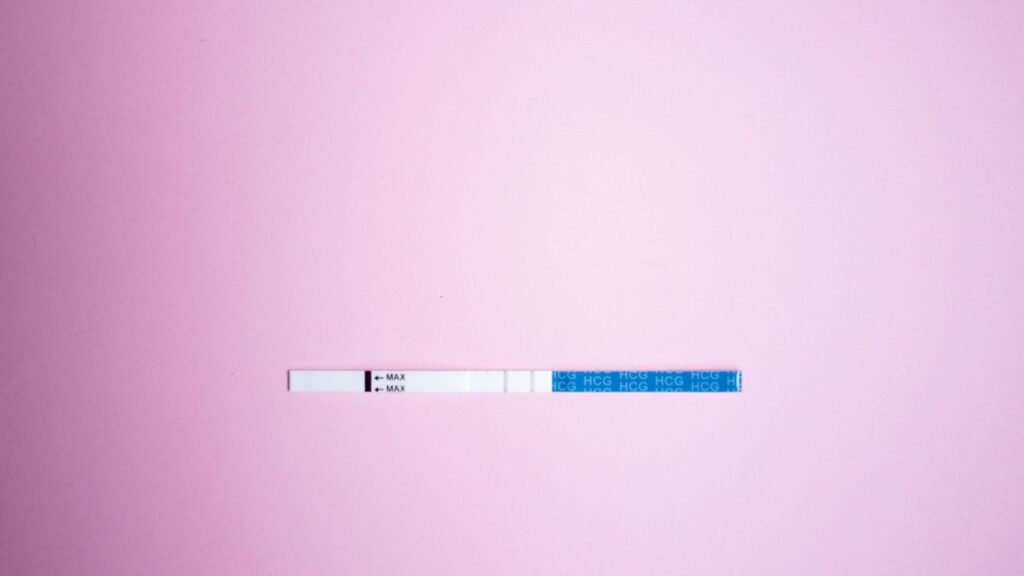You’ve planned out your nursery, have a list of potential baby names, and are eyeing adorable onesies–but getting pregnant seems to be taking longer than you imagined. People don’t always talk about how long it takes to get pregnant and, as a result, it can feel like something is wrong when you don’t conceive right away. However, it’s completely normal for getting pregnant to take some time.
Although getting pregnant often requires up to a year of trying, Dr. Rosencrantz and RHWC have some tips on what you can do to improve your chances of conceiving naturally sooner.
See Your Doctor for a Checkup
It’s always a good idea to see your doctor for a checkup. This gives you a chance to ask whether there’s anything specific you should be doing, and allows your doctor to evaluate whether you’re healthy enough for pregnancy.
If you have preexisting health conditions, you may need to get them under control before becoming pregnant. You should also check whether any medications you take could interfere with your ability to become pregnant or potentially cause birth defects in your baby.
Take Prenatal Vitamins
You should begin taking prenatal vitamins before trying to conceive. Prenatal vitamins contain important vitamins and minerals that support your fertility, and are an important source of folic acid, essential for your baby’s development.
Folic acid is so important that the CDC recommends all women of childbearing age take at least 400 mcg daily. Getting enough folic acid helps prevent your baby from developing neural tube defects, which can occur before you even know you’re pregnant.
Track Ovulation
At RHWC, we stress that one of the most important skills you can learn is how to track ovulation. Your egg only survives for 12-24 hours after you ovulate, and if it’s not fertilized your body absorbs it, and you won’t have another chance to get pregnant until the next month.
There are several ways to track ovulation, and it often makes sense to use multiple methods. You should also expect to track ovulation for several months to get to know your cycle and be able to more accurately predict ovulation.
Calendar Method
You can track ovulation by using a calendar or app to chart your menstrual cycle. Day 1 is the first day of your period, and ovulation typically occurs about 14 days before the start of your next period. If you have a 28-day cycle, you’re likely to ovulate on Day 14; if you have a 25-day cycle, you’re most likely to ovulate on Day 11.
Basal Body Temperature
Another way to track ovulation is to measure your basal body temperature with a basal thermometer each morning before you get out of bed. Your temperature should be about the same on most days of the month, but just before ovulation it will rise by about half a degree. Tracking your temperature over several months will help you predict ovulation.
Cervical Mucus
You’ll need to pay attention to how your cervical mucus changes throughout the month. When ovulation is close, you’ll notice your cervical mucus becomes slippery, clear, and takes on an egg white-like consistency.
Ovulation Test Kits
Most ovulation test kits are very reliable, though it’s still a good idea to use other methods so you know when to begin testing. Many kits come with a limited number of strips, and it can get expensive if you don’t know when to test.
Time Intercourse
Once you’ve learned to predict ovulation, you’ll need to time intercourse to coincide with the positive result to maximize your chances of getting pregnant. Sperm can only survive in the female reproductive tract for up to five days, which means you have a fertile window of about six days each month: five days before you ovulate and the day of ovulation. Try to have intercourse at least every other day during your fertile window so sperm is available for fertilization.
Keep Intimacy Alive
It’s important to prioritize your relationship when you’re trying to get pregnant. Don’t limit sex to your efforts to conceive, and make time for one another outside of trying to get pregnant. Have regular date nights, participate in activities you love, and enjoy each other’s company. When you keep intimacy alive, you’re more likely to want to continue having sex instead of feeling stressed about needing to have sex.
Make Fertility-Friendly Choices
Dr. Rosencrantz and the team at RHWC recommend the following fertility-friendly choices to help you conceive naturally:
- Using fertility-friendly lubricant
- Quitting tobacco and other drugs
- Reducing or eliminating alcohol and caffeine use
- Getting enough sleep
- Maintaining a healthy weight
- Avoiding harmful chemicals and heavy metals
- Eating a fertility-friendly diet
- Getting regular moderate-intensity exercise
- Managing your stress levels
Know When to Seek Help
When, despite your best efforts, you aren’t able to conceive naturally it might be time to see a fertility specialist like Dr. Rosencrantz who can help you time intercourse to ovulation more accurately, or give you medication to induce ovulation. In other cases, you may need fertility treatments like IUI or IVF to help you get pregnant.
As a general rule, you should seek help from a fertility specialist after trying unsuccessfully to conceive for 12 months, and after six months if you’re over 35. You should seek help earlier if you have certain medical conditions or have experienced multiple miscarriages. IF you think you need help, schedule an appointment with Dr. Rosencrantz to begin your fertility journey.
At Reproductive Health and Wellness Center, we are experts at treating fertility issues. We provide the latest in cutting-edge embryo science by using the latest technologies, and we create innovative fertility plans tailored specifically to each individual. But we’re so much more.









